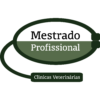The Professional Master’s Program in Veterinary Clinics at the State University of Londrina (PPG-MP), with only six years of existence and 59 alumni, is the only professional program in the area of Veterinary Clinics in the country. Over the last six years, the program has not been restructured, but the faculty grew from 13 members in the first year to 17 members in 2020, with two full members. The intention of including the professors was to strengthen or open new specialties in the program that were not covered when the program was created. This strategy aims to expand the specificities approached in the Final Paper (TCC) and products developed by professionals who wish to develop their problem-solving skills.
Both the structure of the curriculum and the faculty, composed of professors of the Department of Veterinary Clinics and from different departments and schools of the State University of Londrina (CCE, CCB and CECA), promote critical thinking and innovation. Students are encouraged to develop their Final Papers or Products from a multi- and transdisciplinary perspective, making them agents of social transformation with interdisciplinary skills.
The young program has clearly evolved over the years, having a positive impact on the social transformations proposed in the original proposal. In 2017, after only three years of existence, the program, originally evaluated as rate 3, was upgraded to a rate 4 program, according CAPES’s four-year evaluation.
The practical actions, derived from the transmission of knowledge, inaugurated versions of pragmatism transmitted to our students who, consequently, become practical agents in the elucidation of diagnoses and in therapeutic effectiveness guided by the science of veterinary medicine. In addition to the systematization applied to the diverse group of students, since they are professionals from different areas, the main subject area of the program promotes in-group high-quality performance, because the topics approached have a focus on companion and livestock animals. This strengthens the program and expands the demand, solidifying the guidelines, with a palpable perspective to grow with even more autonomy and implement the professional PhD in the program.
Goals
With a focus on professionals in-service, the PPG-MP in Veterinary Clinics aims to promote innovative training practices and foster problem-solving skills at the regional and national levels. Graduates are expected to be able to use their new knowledge as an efficient tool of social transformation, expanding their opportunities in the job market. When part of the academy, the program expects to train the students to reproduce this model of graduate program or design similar models. It is expected that the experience provided by the program will foster entrepreneurship skills and critical thinking, having a positive impact on income and job opportunities. Professionals are expected to offer high-quality services, respect sustainability, and promote social responsibility. This induction of a culture of innovation translates into the development of new equipment, new forms of clinical approach, treatments, diagnosis, or the rationalization of actions and procedures, promoting the development of products linked to more ambitious projects with a technical-scientific characteristic. The program also aims to invite new researchers who have recently got their PhD, or temporary professors, to join the program as supervisors.
The specific objectives are to technically and scientifically train professionals of the public or private spheres, from the first to the third sector, in the subject area of INNOVATIONS IN VETERINARY MEDICAL AND SURGICAL PRACTICE [1] in two research themes:
1. Multidisciplinary approaches in the medical and surgical practice of companion animals and in collective medicine.
2. Integrated diagnostic and therapeutic procedures in clinical and surgical disorders of large animals.
Mission of the program
The main purpose of the Program is to provide specialized continuous technical-scientific education for veterinarians in the clinical area and related fields. In this context, with the curriculum structure offered, the program covers in its guidelines the areas of animal health, public health, and environmental health, characterizing itself as a unique health platform and locoregional reference. This premise provides the opportunity for the systematization between the program and its positive insertions in society, validating current, objective research that reflects an increase in sustainable production and preservation of animal health.
Vision
Consolidate the program as a professional graduate program of excellence in solving problems of the labour market in the public and private spheres.
Values
Cooperation, efficiency, communication, integration, problem solving.
Learning Outcomes
The graduates and the rest of the enrolled student body are professionals linked to public and private institutions, from the first to the third sector, some associated with funding agencies, technical assistance and rural extension service providers, university professors, and professionals working at medical clinics and on surgical treatment of companion animals and livestock production. There is also a characteristic among future graduate towards cooperativism and small rural farmers, promoting social inclusion and the protection of the countryman. Another important aspect to highlight is their participation as health care agents, providing medical assistance and surgeries to cats and dogs, and their close prophylactic and therapeutic relationship. The graduated professional is expected to develop and apply the following skills together or separately:
1. Extension Skills: promote the mediation between science and practice in their professional area with the objective of formulating, coordinating, executing, and evaluating projects of professional intervention in the public or private spheres.
2. Teaching Skills: to be able to design curricula, courses, and provide training in higher education.
3. Technical Skills: be able to critically analyse relevant specialized literature in their area and be able to propose problem-solving scientific technical procedures.
